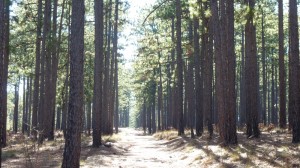“What humans do over the next 50 years will determine the fate of all life on the planet.”
– David Attenborough, British Naturalist and Broadcaster

The decisions we make in our daily life — at home and away from home — impact the wellness of our health, family, community, and the natural world. For instance, conserving energy by turning the lights off in empty rooms is a start to environmental awareness. This small habit is sensible to adopt because it conserves natural resources and saves money. This action may lead to other changes, such as making your own cleaning supplies using non-toxic, biodegradable products like vinegar, baking soda, and lemon. Unsurprisingly, simple eco-friendly habits tend to blend across all areas of our life. Eventually, this may lead you to adopt even bigger practices – for instance, using a bike instead of a car whenever possible.
These routines may sound insignificant, yet these beneficial changes infiltrate and improve almost every aspect of our lives – our health and fragile ecosystem. Regardless of where you fall on the spectrum, try thinking of what more you can do.
How can you help when backpacking?

- Backpack in low-volume areas or during non-peak times, such as during the week instead of the weekend. Whether we like it or not, humans are a form of pollution. Backpacking should allow for peace and solitude. If you are on a busy trail, keep your profile low by not making much noise. If you travel with a group, make it a small group of 6 people or less.
- Help others enjoy a positive wilderness experience by keeping it pristine. Younger people and first-timers are more likely to become involved in outdoor recreation and environmental advocacy when they experience it positively. By being responsible, you can keep it that way for everyone else.
- If you find trash along the trail, pick up what you can and dispose of it properly with your trash. Carrying out someone else’s garbage is always unpleasant and sometimes nasty, but it is the right thing to do.
- If you encounter a person committing vandalism, get a good description of them and remember the location of the incident. Take a photo of them in the act (discreetly, of course) and report it immediately to Park Authorities. It is best not to confront these individuals unless they appear non-threatening (e.g., kids).
- Set up camp in designated camping areas. If that is not possible, use a backcountry site that appears to have already been used before. Always keep an eye out for previously cleared camp spots and reuse them. If you have a choice, opt for the site that appears it hasn’t been recently used to give it a chance to recover.
- When lighting a fire, burn only fallen wood. Never cut down branches from a living tree. Remember the three D’s when collecting firewood: choose only dead, downed, and detached wood. Always keep your fire small and thoroughly extinguish it when leaving.
- Dispose of human waste by digging a hole 6 – 8″ deep. Dig 200 feet or more away from water sources, trails, and camp spots. Carry out your toilet paper and hygiene products.
- If you need to clean with a nearby water source, dip your bandana in the water and use a wet cloth to clean your skin. Don’t get soap into water sources. Otherwise, you can damage fragile ecosystems.
Like you, Outdoor Herbivore is concerned about staying healthy and caring for the natural world. We are committed to making food products (and spreading the word about other companies’ products) that address your concerns regarding ingredient safety, pollution, and animal welfare.
- Other steps you can take to help the environment
- Check out the Leave No Trace website for more information about reducing impacts on the trail
- Learn more about Outdoor Herbivore’s model for trail foods